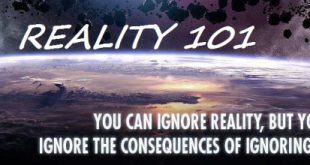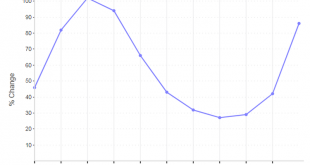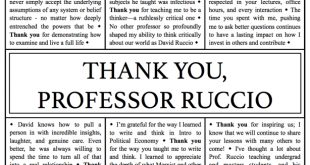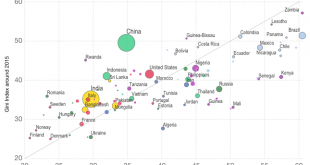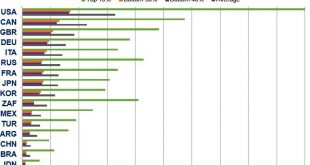from Lars Syll Because I was there when the economics department of my university got an IBM 360, I was very much caught up in the excitement of combining powerful computers with economic research. Unfortunately, I lost interest in econometrics almost as soon as I understood how it was done. My thinking went through four stages: 1.Holy shit! Do you see what you can do with a computer’s help. 2.Learning computer modeling puts you in a small class where only other members of the caste can...
Read More »How bad is global inequality, really?
from Jason Hickel Most everyone who’s interested in global inequality has come across the famous elephant graph, originally developed by Branko Milanovic and Christoph Lakner using World Bank data. The graph charts the change in income that the world’s population have experienced over time, from the very poorest to the richest 1%. We can update the elephant graph using the latest data from the World Inequality Database (WID), which covers the whole period from 1980 to 2016 using a...
Read More »Observational data and causal inference
from Lars Syll Distinguished Professor of social psychology Richard E. Nisbett takes on the idea of intelligence and IQ testing in his Intelligence and How to Get It (Norton 2011). He also has some interesting thoughts on multiple-regression analysis and writes: Researchers often determine the individual’s contemporary IQ or IQ earlier in life, socioeconomic status of the family of origin, living circumstances when the individual was a child, number of siblings, whether the family had a...
Read More »Econ 101
from David Ruccio It’s time to get back to blog writing—after a 6-month hiatus during which I taught my final two courses at the University of Notre Dame (A Tale of Two Depressions and Marxian Economic Theory) and prepared for my retirement (which involved, among other things, sorting through, packing up, and moving decades of “stuff”). Now, after 38 years of teaching, I am officially Professor of Economics Emeritus. But, rest assured, I plan to continue this blog and other writing...
Read More »Is inequality within countries getting better or worse?
from Jason Hickel In a recent Twitter post, Max Roser of Our World In Data claimed that the narrative about rising inequality within countries is incorrect. Inequality has been falling in as many countries as it has been rising, he said, “which should be really embarrassing for many news stories that suggest the opposite with great certainty.” Roser’s tweet referred to an interesting blog post by Joe Hasell, with a graph illustrating the change in the Gini index within countries...
Read More »Inequality and unsustainable consumption
Source: Extreme Carbon Inequality (Oxfam, December 2015)
Read More »MMT — the key insights
from Lars Syll As has become abundantly clear during the last couple of years, it is obvious that most mainstream economists seem to think that Modern Monetary Theory is something new that some wild heterodox economic cranks have come up with. That is actually very telling about the total lack of knowledge of their own discipline’s history these modern mainstream guys like Summers, Rogoff and Krugman have. New? Cranks? Reading one of the founders of neoclassical economics, Knut Wicksell,...
Read More »MMT macro final (3/3) entanglement
from Asad Zaman Previous posts ( MMT Macro Final 1/3 , and MMT Macro Final 2/3 ) have covered questions 1-4 and 5-8. This post covers the last 4 question of the MMT based Advanced Macro course I taught last semester at PIDE. The central methodological difference at the heart of my course was the principle of Entanglement: Theories cannot be understood outside their historical context, and history cannot be understood without understanding theories used by human agents to understand and...
Read More »Solow kicking Lucas and Sargent in the pants
from Lars Syll Professors Lucas and Sargent … have a proposal for constructive research that I find hard to talk about sympathetically. They call it equilibrium business cycle theory, and they say very firmly that it is based on two terribly important postulates — optimizing behavior and perpetual market clearing. When you read closely, they seem to regard the postulate of optimizing behavior as self-evident and the postulate of market-clearing behavior as essentially meaningless. I think...
Read More »Can capitalism feed the world sustainably and fairly?
from Ken Zimmerman In 1798, just before the beginning of the industrial revolution in the UK, Robert Malthus published “An Essay on the Principle of Population as it Affects the Future Improvement of Society, with Remarks on the Speculations of Mr. Godwin, M. Condorcet, and Other Writers.” The thesis for the book was simple. The natural human urge to reproduce increases human population geometrically (1, 2, 4, 16, 32, 64, 128, 256, etc.). However, food supply, at most, can only increase...
Read More » Real-World Economics Review
Real-World Economics Review

